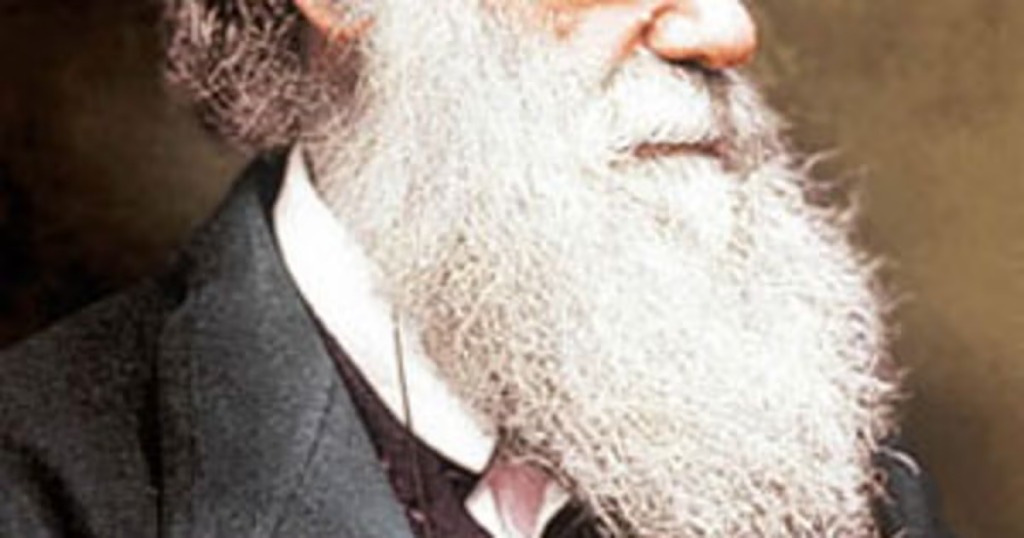Continues after advertising
Embark on a journey of discovery and understanding as we delve into the fascinating world of evolution, a concept that forever transformed our understanding of life on Earth. Hello, I’m Dr. Ana Lúcia, a seasoned scientist with a PhD in Biotechnology and an unwavering commitment to clarity, precision, and scientific rigor in my work. For the past decade and a half, I have dedicated my career to creating accurate, thoroughly-referenced scientific articles and reports. Today, we will explore Charles Darwin’s ground-breaking contribution to evolutionary theory and examine how new discoveries continue to shape and refine this important scientific field. But who was Charles Darwin, and how has his work shaped our understanding of life’s intricate tapestry?
Charles Darwin, a name synonymous with evolutionary theory, forever altered our understanding of the biological world. His seminal work, “On the Origin of Species,” paved the way for a comprehensive theory that accounts for the diversity and complexity of life through the process of natural selection. Darwin’s theory has stood the test of time, but what are the new developments in this field? Have recent discoveries in genetics and molecular biology added new dimensions to our understanding of evolution?
Continues after advertising
As we delve deeper into these questions, we will witness the power of scientific inquiry and the evolving nature of our understanding. Are we standing on the brink of yet another paradigm shift in the theory of evolution? The evidence might surprise you. Get ready to unravel the mysteries of life on Earth, as we traverse the labyrinth of evolution, from Darwin’s pioneering legacy to the cutting-edge discoveries of the 21st century. Hold on to your curiosity and brace yourself for an exciting intellectual journey. Our exploration starts now.
Understanding Darwin’s Theory of Evolution
Evolution, as proposed by Charles Darwin, is a concept that has become fundamental to our understanding of life and its processes. At its core, the theory of evolution suggests that all species are related and gradually change over time. But how exactly does this work?
Continues after advertising
Imagine you’re looking at a family tree. You can see your immediate family, your cousins, your aunts and uncles, and your grandparents. But if you could zoom out even further, you could see how you’re related to distant relatives, ancestors from hundreds of years ago, and even to all other living organisms on Earth. This is the essence of Darwin’s theory – that all of life is interconnected through a complex “tree” of evolution.
Darwin’s Key Discoveries
Darwin’s work on the theory of evolution was influenced by several key discoveries. His voyage on the HMS Beagle provided a wealth of observations and collected specimens that laid the groundwork for his ideas. He noted the variation in species from different locations and how they seemed to be adapted to their environments. This led him to propose the idea of natural selection – the process by which species evolve.
In a nutshell, natural selection suggests that individuals with traits that are advantageous for their environment are more likely to survive and reproduce, passing these traits on to their offspring. Over time, these beneficial traits become more common in the population, leading to evolution.
- For example, consider a population of rabbits in a snowy environment. Some rabbits are born with white fur, while others have brown fur. The white rabbits are more likely to survive because they can blend in with the snow and avoid predators. Over time, more and more rabbits in this population will have white fur due to the survival advantage it provides.
New Discoveries in Evolutionary Theory

Since Darwin’s time, scientists have made numerous discoveries that have added depth and detail to our understanding of evolution. The discovery of DNA and the field of genetics have provided a concrete mechanism for inheritance, explaining how traits are passed from one generation to the next.
Other fields such as paleontology, anthropology, and bioinformatics have provided fossil evidence of extinct species and genetic similarities among species, further supporting the theory of evolution. More recently, the field of evolutionary developmental biology has begun to explore how changes in the development of an organism can lead to evolutionary change.
What Does All This Mean?
So what does all of this mean for us? Understanding the theory of evolution helps us to understand the interconnectedness of life and the processes that have shaped the natural world. It informs fields as diverse as medicine, agriculture, and conservation, helping us to combat disease, improve crop yields, and protect endangered species. Plus, it gives us a sense of our place in the grand scheme of things – as just one small part of the vast web of life that has been evolving on Earth for billions of years.
FAQs about Evolution
As with any scientific theory, there are always questions and misconceptions. Here are a few common ones:
- Is evolution just a theory? Yes, but in science, a theory is a well-substantiated explanation of some aspect of the natural world, based on a body of facts that have been repeatedly confirmed through observation and experiment. The theory of evolution is supported by a vast body of evidence from many different fields of science.
- Does evolution disprove religion? Not necessarily. Many religious individuals and groups accept the scientific theory of evolution. It’s possible to believe in a higher power and also accept the evidence for evolution.
- Can we see evolution happening? Yes! Evolution can be observed in real-time in organisms with short life spans, like bacteria. Additionally, we can observe the effects of evolution in the changes in species over time.
Understanding the theory of evolution is fundamental to understanding life on Earth. As we continue to explore our world and make new discoveries, our understanding of evolution continues to grow and evolve.
Conclusion
In conclusion, the Theory of Evolution: Darwin’s Legacy and New Discoveries, is a fundamental cornerstone of our understanding of life’s intricate tapestry. The principles and concepts, with the extraordinary legacy of Charles Darwin, have shaped our comprehension of the natural world, and opened avenues for further inquiries and discoveries. They have provided a robust and dynamic framework, fostering scientific rigor and curiosity, and facilitating advancements in diverse fields from genetics to paleontology, from biotechnology to ecology.
The revelations made by the theory have profoundly influenced our perception of biodiversity, conservation, and the interconnectedness of all life forms. It has also helped us to appreciate the complexity and beauty of life in all its splendid variations. In a rapidly evolving world, these insights are more pertinent than ever, illuminating our path towards sustainable development, preservation of biodiversity, and adaptation to new environmental challenges.
However, the quest for knowledge is an ongoing journey. Each new discovery unearths a wealth of questions, begging further exploration. We have come a long way since Darwin’s time, but the journey is far from over. How will the theory of evolution continue to shape our understanding of life and our place within it? What new discoveries await us in the realm of evolutionary biology? As readers and participants in this great journey of discovery, what are your thoughts and reflections?
Let us appreciate the legacy of the Theory of Evolution and the new discoveries it continues to inspire. Let us engage in insightful dialogues, stimulate curiosity, and foster a culture of lifelong learning. As we delve deeper into understanding the intricacies of life, let us remember that our pursuit of knowledge is a testament to our evolutionary heritage. Thank you for being a part of this discussion and contributing to the collective wisdom. The journey of discovery continues, and every single one of us is a significant part of it.

